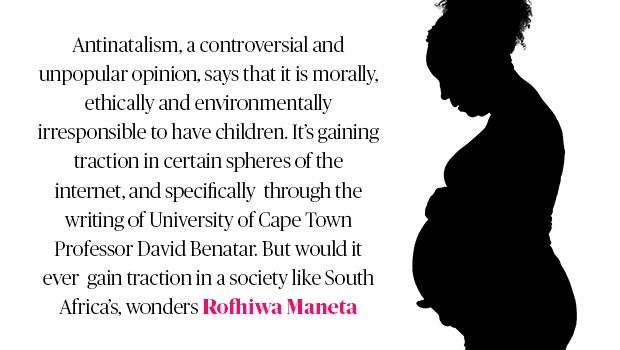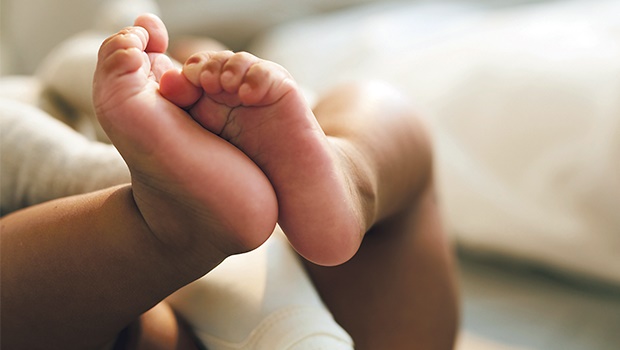DEEP READ
On March 30, a tweet by Kimberly Congdon, a comedian in Los Angeles in the US, generated more than 100 000 retweets. “Not to brag, but what a time to be childless,” the Comedy Central participant tweeted. It’s a sentiment that’s hard to counter. With the world already buckling under the pressures of the climate crisis and global inequality, the Covid-19 coronavirus came in, fists swinging, and did a number on the world’s optimism. As of April 28, there were more than 3 million Covid-19 cases and 200 000-plus deaths reported worldwide. A third of the world is under lockdown and life as we knew it may well have staggered to a complete stop. Add to that the grim declaration that “the pandemic is far from over” by World Health Organisation director-general Tedros Adhanom Ghebreyesus, and it’s not hard to feel like we’re living in a Lynchian nightmare.
If there is a future, it seems distant and vague. “I’m not optimistic,” deadpans David Benatar, the head of philosophy at the University of Cape Town (UCT). “Humans are predictable. I wrote a paper in 2007 about the avian influenza outbreak and the inevitability of a similar pandemic. The conditions that motivated my writing are the same ones that have gotten us where we are today. It’s only a matter of time before this happens again.”
Benatar (53) is an academic of rare vintage. Not much biographical information about him exists online other than his birthdate, his published works and a handful of interviews he’s done over the years. A fierce recluse, Benatar seems happy with publishing ideas and then retreating to the fringes of public discourse while the rest of us wrestle under the shadow of their long implications. In 2006, he published Better Never to Have Been, a book that argues against creating children.
“While good people go to great lengths to spare their children from suffering, few of them seem to notice that the one (and only) guaranteed way to prevent all the suffering of their children is not to bring those children into existence in the first place,” Benatar writes in the book’s opening pages. It’s a philosophy he would later expand on in The Human Predicament, a 211-page book in which he presents his argument about life’s meaninglessness and why we’d all be better off not existing. “Even in good health, much of every day is spent in discomfort. Within hours, we become thirsty and hungry. Many millions of people are chronically hungry. When we can access food and beverage and thus succeed in warding off hunger and thirst for a while, we then come to feel the discomfort of distended bladders and bowels,” he writes.
Then there’s the matter of disease, psychological trauma and crime, and their potential long-lasting physical and psychological effects on the victim. Add all of these together and it is not only dangerous but potentially unethical to bring any life into the world. “The broad idea is that the harms of existence outweigh the benefits,” he tells me over Skype. “So, if you tally up the net harms of existence – the physical and psychological discomforts that come with it – the bad always outweighs the good. Even in the absence of Covid-19, humans do, and will continue to, suffer.”
THE SIN OF BEING A PARENT
Antinatalism – the term used to describe the professor’s worldview – is not an intellectual property exclusive to Benatar. Long before Better Never to Have Been questioned the ethics of reproduction, thinkers such as Norwegian philosopher Peter Wessel Zapffe (1899–1990) and French writer Emil Cioran (1911–1995) were arguing that it was morally untenable to create new lives. What separates Benatar is how quickly his philosophy is gaining currency in mainstream television and on the fringes of the internet. In 2014, cable network HBO’s True Detective introduced the world to Rustin Cohle: a hard-boiled, chain-smoking detective whose pessimistic worldviews were modelled on Benatar’s beliefs. In one arresting scene, Cohle – now a retired detective – speaks of his daughter’s death and the unmistakable relief that later enveloped him.
“I think about my daughter now, and what she was spared. Sometimes I feel grateful. The doctor said she didn’t feel a thing, went straight into a coma. Then, somewhere in that blackness, she slipped off into another, deeper kind. Isn’t that a beautiful way to go out, painlessly as a happy child? Trouble with dying later is you’ve already grown up. The damage is done. It’s too late. You got kids? I think of the hubris it must take, to yank a soul out of nonexistence into this meat; a force of life into this thresher. As to my daughter, she spared me the sin of being a father.” It’s a statement that’s both arresting and completely alien to most of modern society’s firmly held beliefs about parenthood. Parenthood is often viewed as an accepted fact of adulthood and, maybe more philosophically, a means of surviving the grave. Surnames are passed through the act of parenthood. Societies and the human race are kept alive through the act of having babies. And, for the traditionally inclined, the inheritances of royalty are passed from parents to children.
What is rarely considered is the ethics that surround the act of parenthood. Procreating is a selfish exercise: none of us is here because we want to be. We’re here because our parents summoned us into existence. If that sounds like highfalutin, philosophical nonsense, it’s worth mentioning that an Indian man is suing his parents for giving birth to him without his consent. Facebook and Reddit are replete with groups of parents who regret bringing their children into the world. In an AskReddit thread with more than 5 000 comments, several parents shared (mostly) philanthropic stories of why they regretted having children. Because of such issues as disabilities and the environmental and moral degeneration of the world, there is a growing online minority of parents who wouldn’t have kids if they were given the chance to go back and reverse things.
“Most societies are pronatalists; this kind of thinking is always held in the minority,” says the professor. “There’s a biological optimism that’s sustained the human race and will most likely continue to for generations to come. So, even if the coronavirus halved the human population, for example, a large majority of the people who survived it would take hold of the position that ‘we can’t let this thing beat us; the survival of the human race depends on us’. No, this will never be a universally held view.” The whole of Benatar’s philosophy can be explained through a simple four-point asymmetry: the presence of pain is bad; the presence of pleasure is good; the absence of pain is good, even if that good can’t be enjoyed by anyone; the absence of pleasure is not bad unless there’s someone who’s disadvantaged by this absence.
In the context of the current pandemic, we can all agree that the pandemic itself is a terrible thing. The absence of the coronavirus would be a good thing, even if there were no more humans to infect. The inverse, however, is horrifying: if a means existed to end the virus and it was withheld, well, that would be downright evil.
SOME RACIST BULLSH*T?
It’s easy to understand why Benatar’s philosophy has been met with almost universal resistance. For one thing, the canon of antinatalists is almost exclusively white, male and upper-middle class. While the work itself is undergirded by a strong, intellectual ballast, it’s found little resonance with, say, the working class dude living in Soweto. For black people, whose sexuality and reproductive cycle has historically been the subject of racist inquiry and fetishistic observation, the idea that reproducing is morally reprehensible might come off as racist bullsh*t.
Also, while our contemporary definitions of society have shifted through the ages, the idea of why people have children has never faced the kind of examination offered by Benatar. What would it mean if laypeople were forced to come to terms with the fact that they made their children for no other reason than that they wanted to? How does an expecting parent reckon with the idea that they have willingly disregarded the fact that they have yanked a child into one of the most unequal societies in the world at a time when a novel virus threatens the lives of millions.
Who would want to be a parent? “It’s worth mentioning that sometimes people come to these views after having children. Jim Crawford, for example, is an American author who wrote a book called Confessions of an Antinatilist. He’s a father and writes from the perspective of someone who deeply regrets – for his children’s sake – that they exist. So his motivations are purely philanthropic,” says Benatar. “I also have philanthropic and misanthropic motivations for my beliefs – I don’t think the two are incompatible. I think the biggest misrepresentation is that antinatalists are beer-guzzling nihilists.”
An article published by UCT provides a comprehensive list of the misanthropy that informs Benatar’s worldview. The Earth, and other species, would be better off without us. The end of humanity would be the end of our environmental terrorism. Animals would benefit from our extinction. “Humans are a deeply flawed and destructive species that is responsible for the suffering and deaths of billions of other humans and animals. If that level of destruction were caused by another species, we would rapidly recommend that new members of that species not be brought into existence,” writes Benatar.
We may not be ambling towards the end of procreation but, in South Africa, for example, the data suggest that our birth rate is decreasing. A study released last year showed that South African women were wilfully choosing to remain childless; a by-product of increasing bodily autonomy and the archaic cultural conventions that tied women’s worth to how many children they could bear. Even in some quarters of the internet, African women are growing more vocal about childlessness. In 2017, the Pan-African feminist website African Feminism ran an interview with Nina Steele, a UK-based Ivorian and founder of the website nonparents.com, which shares the stories of people who are childless both by choice and circumstance. She shared how the childless movement was growing currency by the day.
“I have come across a fair number of childfree Africans. The BBC did a week-long show on being childless/childfree in Africa, a few months ago, and one of the live shows was from Nigeria. A couple of the participants were women who chose not to have children. “The truth is that more and more people are facing up to the stark reality that having children is far too much of a challenge. The money issue alone is enough to put a lot of people off.” It’s also worth noting that the idea that family is a way of transferring family names and wealth in most African traditions is a masculine invention. The advances of modern feminism mean that women in Africa (and the world over) aren’t bound by the patriarchal convention that their worth is directly proportionate to the number of children they bear.
If the ongoing coronavirus pandemic does anything, it should impress on us the philosophical conundrum that procreation presents us with. “There is no ‘circle of life’,” says Benatar. “You live, die, then you’re gone forever. If you’ve bred, you’ve perpetuated this unfortunate trajectory.” A bold and damning declaration, but one that contains a kernel of truth. Do we want to save the world? Maybe the way to do it is by ceasing to exist altogether.
 | ||||||||||||||||||||||||||
Get in touchCity Press | ||||||||||||||||||||||||||
| ||||||||||||||||||||||||||
| Rise above the clutter | Choose your news | City Press in your inbox | ||||||||||||||||||||||||||
| City Press is an agenda-setting South African news brand that publishes across platforms. Its flagship print edition is distributed on a Sunday. |




 Publications
Publications
 Partners
Partners











